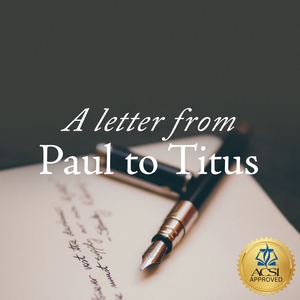Is gambling (whether online or in a casino setting) sinful or immoral?
The Bible is silent on many practices of daily life because life is filled with an infinite variety of circumstances. Nevertheless, the Bible does present principles for living righteously so that we can make reasonable inferences and trust the Holy Spirit to guide us in specific circumstances.
The topic of gambling is an example of one such activity that must be addressed on principle. The Bible is silent on whether gambling is wrong. At times, the Bible shows ungodly men participating in gambling (e.g., Roman soldiers casting lots for Jesus' clothing in Matt 27:35). On the other hand, the Bible also shows godly people relying on an ancient form of gambling called casting lots (or die) to discern God's will concerning a decision (e.g., when the Apostles cast lots or dice to determine who should replace Judas in Acts 1:26).
So, the Bible never explicitly states that games of chance are sin, and therefore we must conclude that a Christian has liberty with regard to this practice. A Christian might attend a friendly poker game with friends, even games where real money is at stake, and a Christian might patronize a local gambling resort for entertainment. A Christian might even travel to participate in a professional gambling tournament for large winnings. All these activities are amoral (i.e., not inherently sinful).
Nevertheless, there are principles of scripture that guide our decisions and may lead us to reconsider our participation in such things. Consider what Paul teaches in 1Corinthians 10:23:
All things are lawful, but not all things are profitable. All things are lawful, but not all things edify.
In other words, gambling may be permissible but is it profitable or advisable for a Christian?
In many cases - perhaps in the majority of cases - the answer may be no. While the simple pastime of playing cards is not immoral or sinful, our participation in these activities does not take place in a vacuum. Our decisions occur in an environment and culture that impacts and is impacted by our decisions.
For example, most forms of gambling encourages – and even depends upon – stimulating a love of money, and the Bible clearly teaches that the love of money is the root of all sorts of evil (1Tim 6:10). When we gamble, are we tolerating a pursuit of the love of money? If so, then we are standing on dangerous ground in our walk as a Christian.
Secondly, casinos typically entice gamblers with various ungodly activities intended to incite lust and debauchery. Some casinos feature legalized prostitution and some are thought to be associated with organized crime. Even in more innocent settings like a neighborhood poker game, gambling can be accompanied by excessive alcohol use, course language, gossip, and many other kinds of ungodly behavior.
Our participation in gambling may not be sinful in itself, but we must carefully consider the full scope of our involvement before deciding if our participation will be free from sin. Can we be sure that we won't be tempted to fall into a love of money? Can we sure we won't engage in other forms of sinful behavior due to the influence of the setting or people around us? Can we be certain that our participation isn't lending our financial support directly to institutions that promote ungodliness as a part of their business? And what of our Christian witness to others in the faith who know of our gambling as Christians?
Since gambling brings many potential pitfalls that do not edify the believer, we strongly recommend against believers engaging in any gambling activity, including playing lotteries or participating in friendly poker games with the buddies. These activities are not sin by themselves, but they often bring sin into our lives in other ways, and gambling must be approached with great caution if we are to avoid falling into sin.
Scripture quotations taken from the (NASB®) New American Standard Bible®, Copyright © 1995, 2020 by The Lockman Foundation. Used by permission. All rights reserved. www.lockman.org









